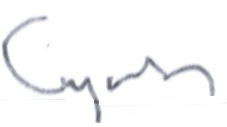Suffering Hope: A nondual perspective on contemplative engagement
As we consider all the changes on our planet, questions emerge for Living School alumni and students: What do these changes mean and how do we come to terms with a future that suddenly feels much darker and more precarious? What is the right stance of contemplative engagement in which our hope is neither engulfed by despair nor “glosses over” our human and planetary suffering?
I’d like to suggest that we begin by examining the yardstick with which we often measure change. In our high-speed, fire-wired lives, we have become accustomed to getting immediate responses to our instant correspondence and having everything at our disposal with a swipe of our index finger on our smart phones. Our perspective has grown increasingly myopic, disconnected from the greater (and slower) story of evolution in which we participate.
Teilhard de Chardin, however, reminds us that “deep hope flows over deep time.”
Perhaps it seems that this perspective disregards all sensitivity to individual suffering and pain by setting the scale at so vast a magnitude that human lives register as no more than tiny pixels. While Teilhard was often accused of this “false” optimism, he was by no means indifferent. His life-transforming vision of the oneness of humanity came in the midst of serving as stretcher bearer in the bloody trenches of World War I, and his writings on human progress arose from the untold depths of personal suffering he endured in faithfulness to a vocation and a Church that actively blocked his path. He knew personal suffering only too well, and he looked straight into the face of the sorrow and horror and named them as such. The haunting prayer woven into Teilhard’s reflection on faith in The Divine Milieu makes clear that it is no cheap optimism he is dispensing, but a wrenchingly honest acknowledgement of our human predicament:
Ah, you know it yourself, Lord, through having borne the anguish of it as a man: on certain days the world seems a terrifying thing: huge, blind, and brutal. It buffets us about, drags us along, and kills us with complete indifference. . . . At any moment the vast and horrible thing may break in through the cracks—the thing we try hard to forget is always there, separated from us by a flimsy partition: fire, pestilence, storms, earthquakes. Or the unleashing of dark moral forces—these callously sweep away in one moment what we have laboriously built up and beautified with all our intelligence and all our love. (The Divine Milieu, p. 112)
Teilhard knew the road rises on the other side of despair. Allowing oneself to be engulfed in either anger or grief amounts to a fatal loss of moral nerve and hence a betrayal of the evolutionary task entrusted to our species.
I want to make clear that I do not see this “deep hope” as an excuse to relax our vigilance in stewardship for the planet. Teilhard does not permit himself to be used that way; his sense of the oneness of the earth and of its dynamic interwovenness pervades everything he sees and writes.
For sure, we need to fall on our knees every morning and pray for guidance through this latest dark time of human greed and destructiveness. But our real task at this evolutionary cusp is to learn how to tenderly keep our hearts open with active concern for the suffering on our planet, while not losing sight of the vision of our common humanity that is indeed “groaning and travailing” to be born.

Cynthia Bourgeault

